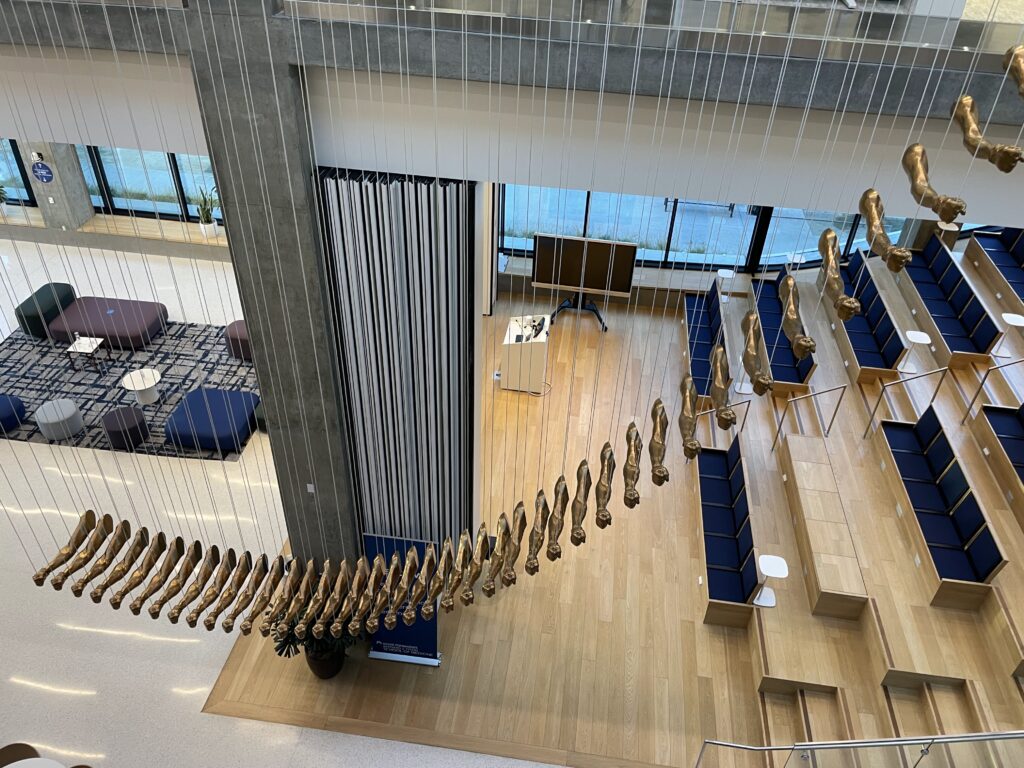SoCal Accelerates as Center of Convergence of Healthcare Innovation

Last week, the Alliance brought together fifteen of the greatest minds in SoCal healthcare innovation which included top investors, hospital systems executives, biotech firms and academia for a roundtable discussion and tour of the new Kaiser Permanente Bernard Tyson School of Medicine in Pasadena. The building is state-of-the-art and brimming with cutting edge methods and facilities for teaching medicine to the next generation of doctors and provided an inspiring venue for the discussion which covered a wide range of healthcare challenges and innovative solutions. The core objective of the roundtable was to strengthen interconnectivity between the leaders and to foster sharing of diverse perspectives to drive innovation throughout the healthcare ecosystem.
The afternoon commenced with a tour of the impressive medical school facilities led by Dean Mark Schuster that included digital classrooms, a simulation center with robotic ER patients, a mock-clinic, and a fascinating anatomy lab that makes use of human bodies that have been preserved through a process called plastination and dissected to display bodily systems. The tour ended in the outdoor coffee shop, which was where our healthcare discussion was hosted. Everyone agreed that the facility and the use of technology to support learning were super impressive and compelling for our next generation of doctors. Here are some photos of the group touring this amazing facility.
The tour was followed by a lively healthcare innovation leadership discussion. After a brief welcome, I quickly passed the baton to our discussion moderator Andy Slavitt, who served as the acting administrator of the Centers for Medicare and Medicaid Services from March 2015 to January 2017 and as a temporary Senior Advisor to the COVID-19 Response Coordinator in the Biden administration. He opened by declaring that we are in a Golden Age of healthcare due to the confluence of the following factors: abundant capital, shifting models of healthcare delivery, AI/ML, power of genomics, growing recognition that the government depends on the private sector, the role of the public to drive innovation, and the magnitude of problems confronting the industry. Slavitt also noted that SoCal is in its infancy compared to accomplished top healthcare clusters (e.g. Boston, San Francisco Bay Area, Minneapolis, etc.).
Slavitt then guided the group through a series of provocative questions about trends and opportunities in healthcare innovation. Speakers highlighted opportunities and challenges in:
- STEM Cell/ Neural science
- AI/ML & Data sharing
- Healthcare delivery: how to more effectively provide health services to patients
- Gamification as a tool for health education and behavior change
- Health equity and the gaps that exist across specific populations
- Improving the pace of innovation
Slavitt pointed out that we are all, to a great extent, government contractors whether we know it or not. We need to help lawmakers understand our problems and how to solve them to unlock innovation in healthcare. Academic leaders pointed out that problems are not efficiently fed back into academia and research so they can be tackled effectively. While a hospital CEO shared the case study of students building a ventilator prototype within 48-days from supplies that could be procured at Home Depot clearly demonstrating accelerated problem solving is possible if people are focused on making it happen. As we concluded, there was a shared observation about the looming nursing crisis that is certain to push a dramatic wave of innovation.
After this intense exchange of ideas we headed to cocktails and dinner. We believe lively conversations lay the groundwork for relationship building and there is nothing like a fine meal and good wine to keep the ball rolling. We are hopeful that new ideas were shared and new connections made that might ultimately bend the curve on addressing pressing challenges in healthcare. There was no question amongst this group of healthcare leaders that SoCal will play a pivotal role in addressing many of these challenges and continue to accelerate its position as leader in healthcare innovation.